Funding for Polymer Science Park initiative to promote sustainability in the plastic industry
Oost NL provides funding to Polymer Science Park (PSP) in Zwolle. PSP supports and facilitates SMEs in developing circular plastic products and technologies. With the funding, PSP can further focus on strengthening and making the plastics and materials sector in the region more sustainable. Oost NL provides the funding from the ‘Participatiefonds Oost NL’.
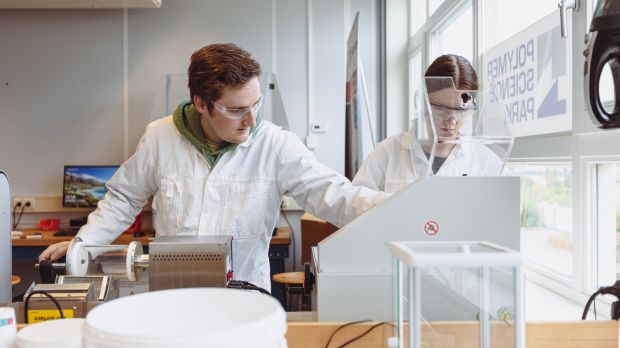
Polymer Science Park has emerged in Zwolle, due to the impressive plastics cluster located there. Approximately 240 companies, now from all over the Netherlands, in the plastics sector provide 25,000 jobs. Additionally, the region houses the second-largest carpet industry in the world, an industry where many advanced materials are (re)used.
Both industries face significant challenges in terms of sustainability and circularity. This is particularly a considerable task for SMEs. For instance, the regulations surrounding the proportion of recycled content in materials and products are becoming increasingly stringent. Specialized knowledge is required for the sustainable development of products and the creation of circular business models. PSP offers the expertise, skills, network, and facilities to conduct part of the R&D necessary for this.
“The need to use resources more efficiently is becoming increasingly important, but the reuse of plastics is far from as straightforward as it seems,” explains Gijs Langeveld, managing director of PSP. “We assist entrepreneurs by researching possible alternatives to ‘virgin’ materials, which are made from fossil resources. We have the machines and knowledge to conduct this research, and we can connect companies facing similar challenges in the sector.”
Funding strengthens plastics cluster
Sander de Boer, investment manager Tech, explains why Oost NL is providing the loan:
“PSP plays a crucial role in innovation in the region. They support SMEs in achieving a circular and future-proof business model. They also contribute to the energy and climate transition through the reuse of materials and waste reduction. Additionally, innovative start-ups and scale-ups can benefit from the expertise present at PSP, enabling them to further develop.”
Langeveld is pleased with the boost for PSP: “This loan enables us to further shape our strategy. We want to engage more customers and enhance our networking function. The demand for our services is growing, and we want to be able to meet that. The funding from Oost NL will assist us in that.”
Years of collaboration between the business sector, governments, and knowledge institutions
Oost NL was one of the initiators of PSP in 2011, alongside DSM, Wavin, Windesheim University of Applied Sciences, Deltion College, the municipality of Zwolle, and the Province of Overijssel. Since its establishment, PSP has grown into an institution that actively supports SMEs in the sustainability of the plastics chain through research and development, training plastic experts, and fulfilling its role as a network partner. To date, more than 50 companies have joined as participants in the organization.
PSP, together with Oost NL, is one of the partners in the Dutch Circular Polymer Valley (DCPV), a collaboration of governments, businesses, and knowledge institutions that emerged in the Zwolle region. Together with entrepreneurs, they encourage innovations and collaboration to increase the share of circular polymers. Want to know more about PSP? Feel free to contact us.
Operators know exactly which buttons to press. They perform that ‘trick’ daily, of course. But what happens when problems arise? Do they also know exactly what is happening on the back end? And how do they adequately resolve this to prevent production downtime?
Showing involvement and taking responsibility for the production process are important reasons why companies in the plastics industry invest in training and further developing their staff. They want their personnel to feel responsible for ‘their’ process and to be able to resolve minor disruptions themselves.
In this blog, you will discover the types of training available in the plastics industry and the advantages and disadvantages of each. At the end, you will find four key questions to help you make an informed choice.
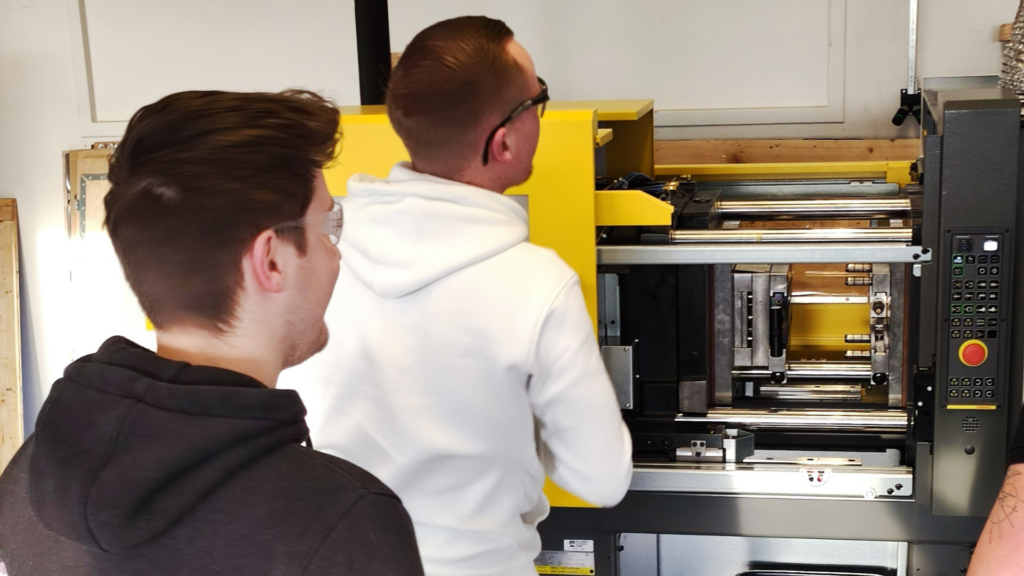
The four types of training and courses in the plastics industry
The landscape for training, courses, and workshops on (working with) plastics is vast. What should a company in the plastics sector choose? To assist you, we have outlined the four different training options available. You can also view them in the table further down in this blog.
-
Higher Education Courses
In the Netherlands, there are several higher education institutions offering programmes for the plastics industry at both bachelor and master’s levels, such as Polymer Engineering or Polymer Design Engineering. These programmes are often two years long (consisting of multiple modules).
- Employees delve deeply into the subject and receive a recognized higher education diploma upon successful completion.
- Please note that this type of training requires a significant investment, both in time (two years, one day a week) and money (an average of €11,250 per year).
-
Vocational Education Courses
In contrast to higher education courses, the vocational education (part-time) courses focused on plastics often last only a few class days. For example, employees can complete the Plastics Technology course at Deltion College in just 10 class days (20 sessions over 10 weeks).
- These are relatively short courses, culminating in an (level 4) vocational certificate.
- These programmes are broad and provide a solid foundation. Like the higher education courses, these programmes do not take place on-site.
-
Practical Training
Practical training, for example from a provider like STODT, focuses on a specific aspect of the plastic production process. Consider, for instance, injection moulding 1, 2 or 3, or extrusion 1. These courses are concluded with a nationally recognised industry diploma (VAPRO) if sufficient results are achieved.
- Good foundational training specifically on processing techniques that serve as a starting point for further development.
- The courses are often broad and (theory) not entirely tailored to the client’s materials, machines, and processes.
-
Custom Plastic Training (On-site)
For this type of training, a half-day intake is often conducted prior to the training to map out the needs and knowledge level of the group. This allows for specific focus during the training on certain materials (such as PVC, PET, PA, regrinds, and recyclate), processing techniques (such as injection moulding, extrusion, and blow extrusion), and operations, while avoiding ‘unnecessary topics’. The training is delivered at the production site by a subject-matter expert, in collaboration with your own specialists. Participants will also work on your own machines and with your own materials. Custom training can be organized for various departments; operations, research & development, as well as non-technical departments (such as sales).
- This is a short-term training that takes place at your own location, using your own materials and machines. As a result, the knowledge gained can often be applied immediately.
- Employees acquire the necessary vocational knowledge but do not receive a certificate or diploma.
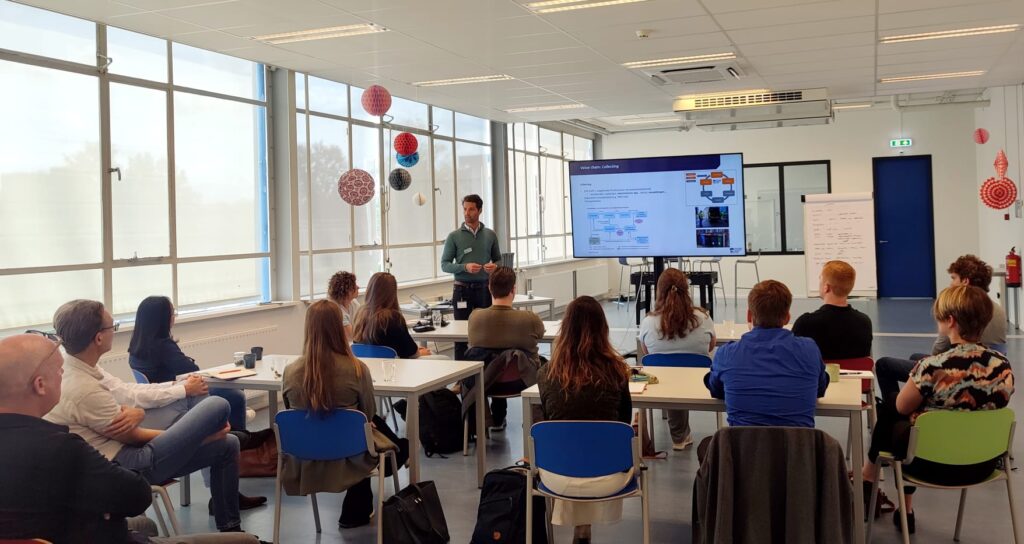
Making a choice? Ask yourself these 4 key questions
Based on the types of training mentioned above, here are the four key questions you can ask yourself to make an informed choice for your staff.
- Is it important for employees to receive a recognised diploma or certificate?
In higher professional education (HBO), secondary vocational education (MBO), and practical training, employees receive a recognised diploma, (partial) certificate, or VAPRO certificate upon successful completion. This is not the case for customised training.
- Is it important that the training is conducted on-site and that the employee’s own machines and materials are used?
Training at the employee’s own workplace has significant advantages for the learning effect. He or she becomes familiar with all the ins and outs of their own machines and the materials they use daily. Do you consider this important? If so, a practical training session on-site or a customised training programme may be of interest to you.
- Do the employees already have basic knowledge (for example, injection moulding 1) and are they specifically looking for further depth?
Depending on the knowledge level of your employees, you can then opt for follow-up training with a practical trainer, such as injection moulding 2 or 3. This is a fixed programme that can cover topics that employees are already proficient in. The alternative is a bespoke training (on-site). These training sessions can be tailored to the knowledge level of the employees (from beginner to expert) and are specifically aligned with their learning needs. Unlike follow-up training with a practical trainer, employees in a bespoke training do not follow complete modules. They focus in a bespoke training on the topics they encounter or wish to learn more about.
- What training budget is available?
There are significant differences in price and duration among the various types of training. To give you an idea of these differences, we have compiled a selection of training prices and durations as of 26-04-2024 and presented them in the table below (in Dutch).
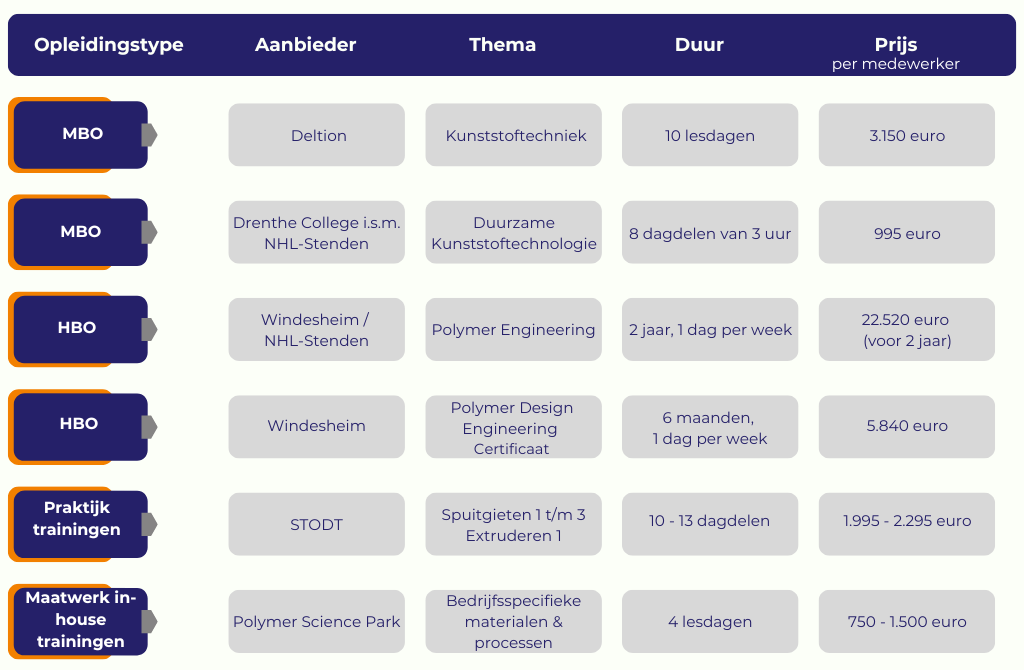
From Trick to Craftsmanship
One thing is certain: no matter which training, education, or course on plastics you choose, you are providing your staff with the necessary tools to make the transition from performing a trick to true craftsmanship.
Are you looking for a plastics training course for your staff? We would be happy to advise you on a plastics training course that suits your needs and those of your staff. Please feel free to contact Peter van Barneveld, Business Manager Training.
On 14 November 2024, the Kunststof Seminar: From Recyclate to Product will take place at the Makersfabriek in Zwolle. The event will cover the following topics:
- Breakout Session 1: Processing of Recyclate
- Breakout Session 2: Material Properties and Applications
- Breakout Session 3: Opportunities for Recyclate: Supply and Demand in Collaboration with Verpact
Interesting speakers from the industry will guide you through inspiring breakout sessions. There will also be enough opportunity to network and form new collaborations during matchmaking, lunch, and the networking reception.
Opportunities for Recyclate: Supply and Demand in Collaboration with Verpact
Verpact and Polymer Science Park are jointly organizing the interactive breakout session ‘Opportunities for Recyclate: Supply and Demand’ focused on packaging and recyclate from packaging. 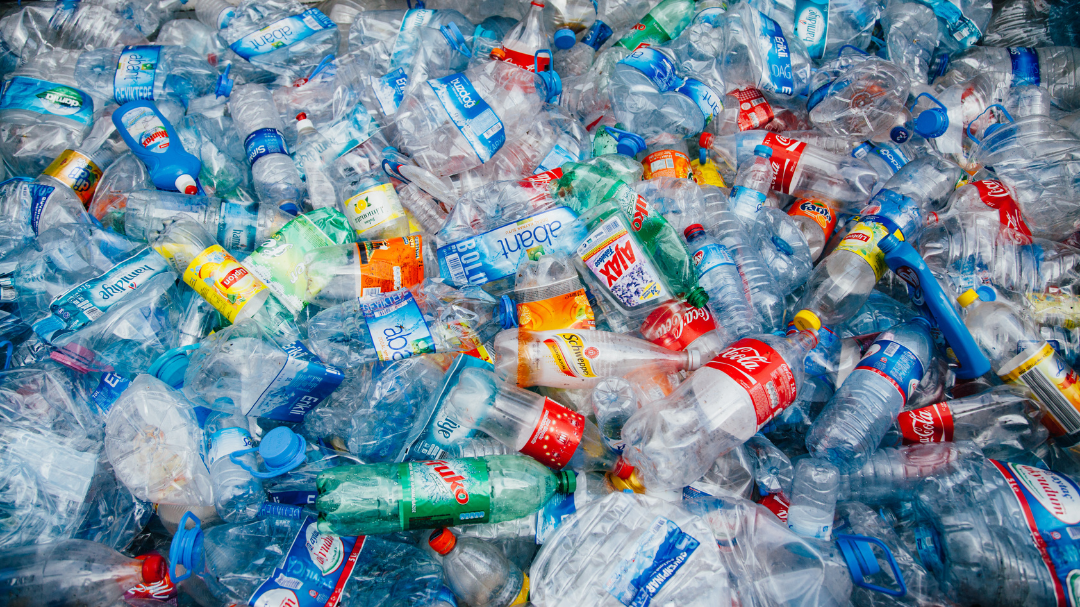
During the first breakout session, participants will collaboratively explore challenges with the aim of finding solutions. How can recyclate be applied effectively? We will also highlight a few best practices.
In the second breakout session, we will engage in a debate based on statements derived from our joint exploration of recyclate, with the goal of advancing plastic innovations. Together, we make recycling possible.
Programme
11:00–12:00 Matchmaking (by registration)
12:00–13:00 Arrival, including lunch
13:00–13:45 Plenary Opening with Ruben van Zwieten
In a business environment, Ruben offers a different perspective from business administration, management, and technology: the imaginative power to view our field through the lens of purpose.
14:00–15:00 Breakout Session 1
- Breakout Session 1: Processing of Recyclate
In this session, Wouterus Huygen from ORA Machines will discuss the dumping, drying, transporting, and melting of recyclate. Nils Schut from Polymer Science Park will explore the impact of recyclate on the injection moulding process. Additional speakers to be announced. - Breakout Session 2: Material Properties and Applications
Hans Kolnaar from Timmerije will speak on working with recyclate in practice as part of the ‘Recycle’ project. Additional speakers to be announced. - Breakout Session 3: Opportunities for Recyclate: Supply and Demand
Participants will delve into challenges with the aim of finding solutions. How can recyclate be effectively applied? We will also highlight a few ‘best practices’.
15:00–15:30 Coffee Break
15:30–16:30 Breakout Session 2
- Breakout Session 1: Processing of Recyclate
The theme for this session is ‘Rebuilding the properties of recycled polyolefins’, presented by Nouryon. Additional speakers to be announced. - Breakout Session 2: Product – Influenceable Material Properties
Tide Ocean Material will discuss ‘Applications for high-end recyclates; success stories’. Additional speakers to be announced. - Breakout Session 3: Opportunities for Recyclate: Supply and Demand
We will engage in a debate based on statements arising from our joint exploration of recyclate, with the aim of advancing plastic innovations.
16:30–17:00 Plenary Closing
17:00–18:00 Networking Reception
Don’t miss out and order your tickets quickly! The seminar is free for PSP participants. Would you like more information about partnership opportunities? Feel free to contact us.
Tickets
Order your tickets for the Kunststof Seminar through the system below. If you have any questions about ticket sales, please contact us.
Who is it for?
The seminar is of interest to:
- Directors
- Product and Account Managers
- Researchers
- Product Developers
- Process Technologists
Please be aware that the main language during this event will be Dutch.
What previous attendees said about our last seminar
“PSP brings together experts from their network, fostering cross-pollination and accelerating innovation in the region.”
— Managing Director
“It was very interesting to meet industry peers and engage in discussions on a wide range of topics.”
— Business Manager
“I found the setup excellent, with interesting and relevant topics on the agenda.”
— Vice Director
Partners
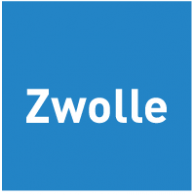
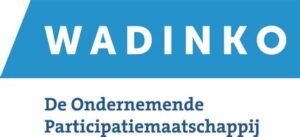
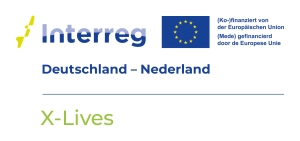

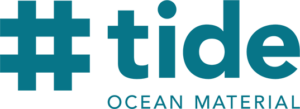
Your Company at the Seminar
Your company can also participate in the events organized by Polymer Science Park, not only as an attendee but also as a sponsor. We offer several attractive sponsorship packages for each event, allowing you to put your company on the map nationally and expand your network. More information about these packages can be found here: Kunststof Seminar Sponsorship Opportunities (in Dutch).
For any questions, you can contact our Communications Manager at the email address j.nijhof@polymersciencepark.nl.
We look back with pride on a successful ‘Nationaal Kunststof Congres’ 2023 in Zwolle. A congress day filled with inspiration, valuable contacts, and tools that the industry can build upon. And an inspiring tour of leading entrepreneurs in the Zwolle Region. If you attended the ‘Nationaal Kunststof Congres’ , we are eager to hear your opinion.
The Future
The National Plastics Congress will return in 2025. So, mark 13th November 2025 in your agenda. Would you like to stay updated on developments? Then please leave your details. As soon as we have more information about the new edition, we will share it with you.
Sign up using the form below to stay informed about the National Plastics Congress.

 Request quotation
Request quotation  Login
Login 
